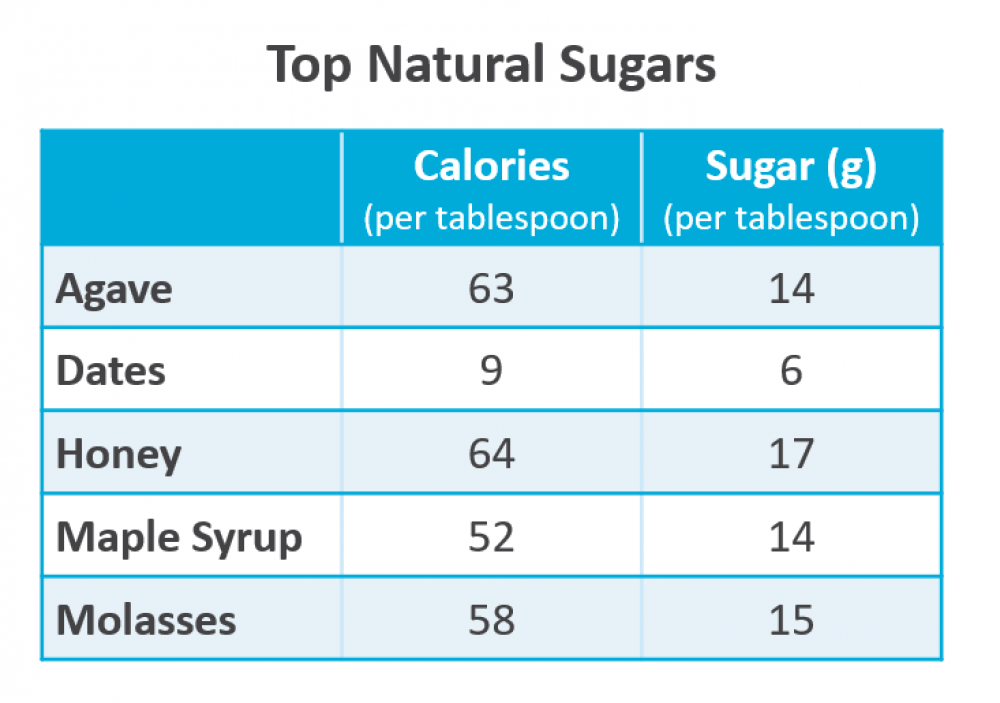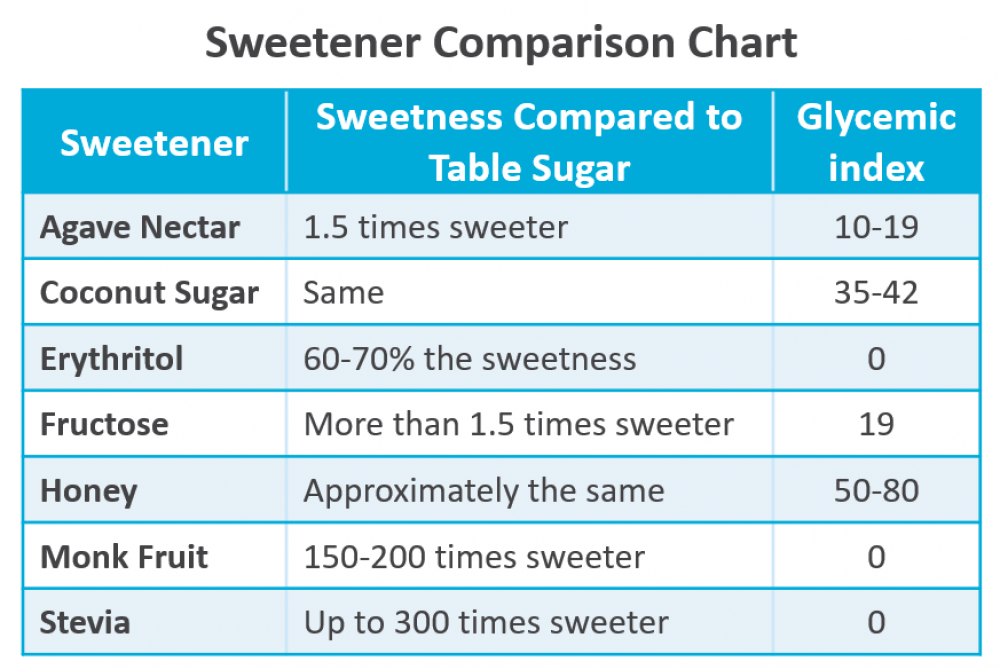Selecting a Winning Sweetener For Your Beverage
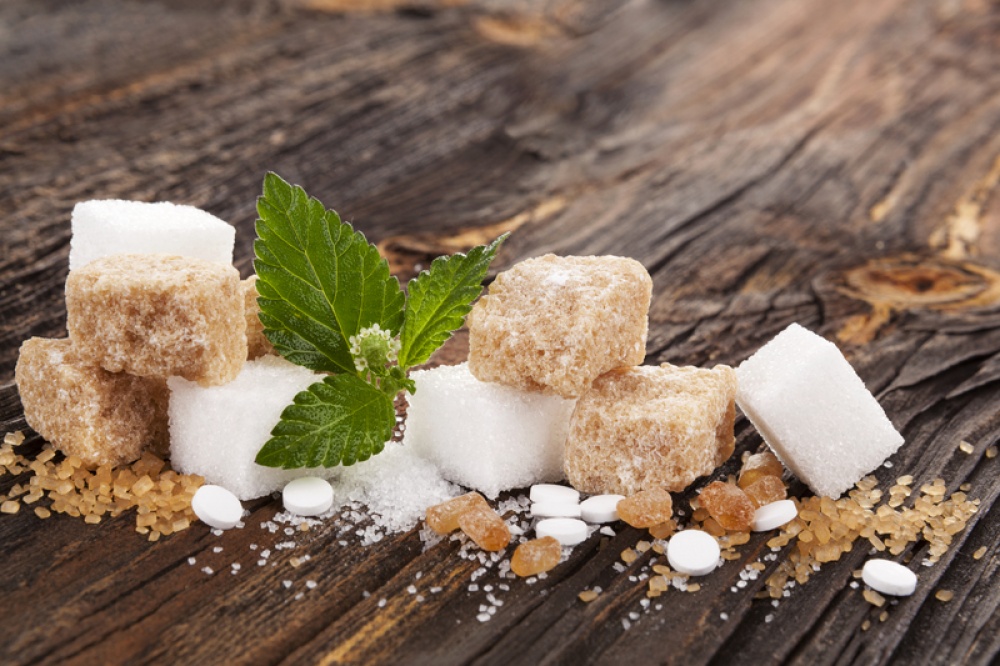
Approximately 75 percent of American adults are trying to consume less sugar according to a survey from the International Food Information Council. Increasing awareness about sugar’s role in health conditions like diabetes and obesity as well as the rising popularity of diets such as keto, Whole30, and paleo, are driving more consumers away from drinks containing sugar. The government’s recent addition of an added sugar line to the Nutrition Facts panel further reflects the increased scrutiny of food and beverages sweetened with sugar. The American Heart Association (AHA) recommends limiting the amount of added sugars you consume to no more than half of your daily discretionary calories allowance. For most American women, that’s no more than 100 calories per day or about six teaspoons of sugar. For men, it’s 150 calories per day or about nine teaspoons. What does all of this mean for beverage creators? It’s never been more critical to understand the full range of options available to sweeten a beverage and the opportunities and challenges that come with each option.
Sugar
Sugar is still a prevalent and viable sweetener option for many beverages. Sugar, or sucrose, is a simple carbohydrate that is produced naturally in all plants, including fruits, vegetables, and even nuts. The first indications of the domestication of sugar cane were around 8000 BCE. Refined sugar (table sugar) refers to sugars that have undergone an extraction and purification process. Refined sugar is usually made from sugar cane and sugar beets. Examples of refined sugars include white sugar, cane sugar, brown sugar, coconut sugar, palm sugar, invert sugar, and high-fructose corn syrup. During the refining process, the sugars are processed to the point where the nutrients naturally available in the cane or beets are lost. Sugar has been incorporated into beverage recipes for centuries. The sweetness of sugar masks other tastes such as bitterness while adding texture and mouthfeel to a beverage.
Natural Sugars
Consumers that are looking to avoid refined sugars may embrace natural sugars such as honey and agave. The difference between natural and processed sugars is how each one delivers glucose and fructose. Natural sugars also contain nutrients, vitamins, fiber and antioxidants that are not available in refined sugar. Both processed and natural sugars will affect a person’s blood sugar levels as measured by the glycemic index. Foods higher in the glycemic index are digested and absorbed by the body more quickly, so they have a more significant effect on blood sugars than low glycemic index foods. All sugar, regardless of where it comes from, contains four calories per gram, so natural sweeteners still contribute to the overall sugar content of a beverage. Here is a table that shows the sugar content and calories for one tablespoon of some of the top natural sugars. For reference, a tablespoon of white sugar contains 13 grams of sugar and 48 calories.
Low or No-Calorie Sweeteners
Low-calorie sweeteners, also known as artificial high-intensity sweeteners, or natural high intensity sweeteners, contain few or no calories but have a higher intensity of sweetness per gram than sugar. Some examples of low-calorie or no calorie sweeteners are aspartame, sucralose, acesulfame-K, and saccharin. The list of naturally-derived low or no-calorie sweeteners is also growing. Some of the most popular low or no-calorie, natural sweeteners include stevia, erythritol, monk fruit, and allulose.
Erythritol
Erythritol is a polyol, or sugar alcohol, found in fruit such as melons, grapes, and pears. Erythritol was first isolated in 1852, and it became commercialized as a sugar alcohol in the 1990s in Japan. It is on the “Generally Recognized as Safe” list in the U.S. Erythritol has a very low caloric value (0.2 kcals/g), so it doesn’t affect blood sugar, but it is only about 70% as sweet as table sugar. Unlike other polyols, erythritol does not provoke stomach problems because it is easily absorbed. It also lacks any “off” taste. Erythritol is typically more expensive than table sugar, and it takes 800 times as much to equal the sweetness provided by sucralose. Erythritol is often blended with other low-calorie sweeteners to balance their taste and texture.
Contact our beverage experts at BevSource to help you navigate supply chain challenges, and get access to our extensive network of erythritol manufacturers and other beverage ingredient suppliers.
Monk Fruit
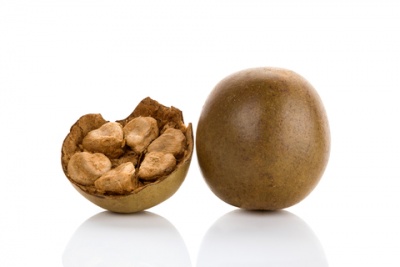 Monk fruit, also known as lo han guo, or Swingle fruit, Monk fruit is a small round fruit native to southern China. Unlike most fruits, whose sweetness comes from fructose sugar, monk fruit’s sweet taste comes from a substance called mogroside, which tastes extremely sweet but has negligible calories. Monk fruit is 150-250 times sweeter than sucrose and is often used to mask “off” flavors from fortifying minerals and vitamins. It is also “Generally Recognized as Safe” (GRAS) by the FDA. Due to its intensity, monk fruit is needed in minimal amounts and is often paired with a bulking agent, such as erythritol, to assist with dispersion in manufacturing.
Monk fruit, also known as lo han guo, or Swingle fruit, Monk fruit is a small round fruit native to southern China. Unlike most fruits, whose sweetness comes from fructose sugar, monk fruit’s sweet taste comes from a substance called mogroside, which tastes extremely sweet but has negligible calories. Monk fruit is 150-250 times sweeter than sucrose and is often used to mask “off” flavors from fortifying minerals and vitamins. It is also “Generally Recognized as Safe” (GRAS) by the FDA. Due to its intensity, monk fruit is needed in minimal amounts and is often paired with a bulking agent, such as erythritol, to assist with dispersion in manufacturing.
Stevia
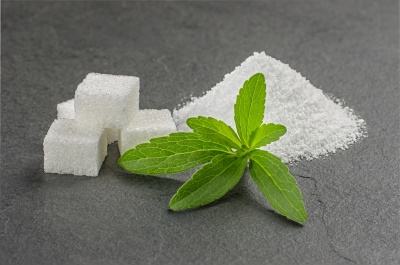 Stevia is a sweetener extracted from the leaves of the Stevia rebaudiana plant, which is native to South America. Stevia has been used as a sweetening agent for centuries in various cultures. It is 200 times sweeter than sugar, but with zero calories. Stevia-derived sweeteners achieved GRAS in 2009, and global regulatory organizations across 65 countries have approved the use of high-purity stevia leaf extracts in food and beverages. Because stevia molecules are metabolized in the lower intestine, they are believed to provide sustenance for beneficial bacteria and aid in digestive health. Chemical compounds in the stevia plant interact with both the bitter and sweet receptors within human taste buds. Because there are 25 different receptors for bitter tastes, and only one receptor that identifies sweet tastes, Stevia tends to have a bitter aftertaste for some people. Stevia is often combined with sugar or other sweeteners to address that bitterness that some consumers are more sensitive to or do not care for. The usage of stevia is growing rapidly. Launches of beverage products containing stevia grew 11% from 2016 to 2017.
Stevia is a sweetener extracted from the leaves of the Stevia rebaudiana plant, which is native to South America. Stevia has been used as a sweetening agent for centuries in various cultures. It is 200 times sweeter than sugar, but with zero calories. Stevia-derived sweeteners achieved GRAS in 2009, and global regulatory organizations across 65 countries have approved the use of high-purity stevia leaf extracts in food and beverages. Because stevia molecules are metabolized in the lower intestine, they are believed to provide sustenance for beneficial bacteria and aid in digestive health. Chemical compounds in the stevia plant interact with both the bitter and sweet receptors within human taste buds. Because there are 25 different receptors for bitter tastes, and only one receptor that identifies sweet tastes, Stevia tends to have a bitter aftertaste for some people. Stevia is often combined with sugar or other sweeteners to address that bitterness that some consumers are more sensitive to or do not care for. The usage of stevia is growing rapidly. Launches of beverage products containing stevia grew 11% from 2016 to 2017.
Allulose
Allulose is a natural sweetener that unlike stevia, monk fruit, and erythritol, is an actual sugar that is chemically similar to table sugar and has a similar taste, texture, and browning properties to sugar. Allulose is about 70% as sweet as sugar and has one-tenth of the calories of sugar. On April 17 2019, the FDA gave the green light for Allulose to be excluded from the total and added sugars declarations on the Nutrition Facts and Supplement Facts labels when used as an ingredient. Allulose will still count toward calories, however. This the first time the FDA has allowed a sugar product to be excluded from nutritional labels, according to Healthline.
Blends
An increasing number of beverage manufacturers are launching products with natural sweetener blends. Blends allow beverage creators to bring the texture and mouthfeel of products closer to what consumers expect from traditional sugar. Combinations of natural sweeteners can help balance flavors and mask bitterness while also helping to stay within caloric and cost constraints. It is also possible to incorporate sugar, agave, honey, or other caloric sweeteners in conjunction with non-nutritive sweeteners to create a beverage with the right balance of taste, texture, ingredient perception and calorie count.
(Source: Now Foods)
Secrets to Sweetener Success
In the rapidly changing world of sweeteners, there are some guidelines that will help you navigate the process of selecting the right one for your beverage.
- Don’t be all things to all people – Understand your target market and where you can and can’t compromise to gain their business. In your quest to find the right sweetener, there will be opportunities to sub in processed ingredients and sugar in the name of taste and cost. You need to understand your target market well enough to make those calls.
- Study your sweetener options – Get to know the properties and potential obstacles that come with each sweetener. A baseline understanding of which sweeteners are natural and which are processed and how they contribute to the sugar content, caloric content, and glycemic index, will help you make better decisions about ingredients and blends.
- Be open to blends – There are always new developments in the sweetener world. The more you can communicate your requirements and parameters to your flavor house and allow them to propose solutions, the more creative options will emerge.
- Taste and tweak – Be prepared to taste variations with several sweeteners and to give actionable and relevant feedback. It can be helpful to use a sensory form and to reference the taste and sweetness of existing beverages as points of comparison.
Selecting the right sweetener can seem like a daunting task, but it is an important part of developing a viable and profitable product. With the right tools and team, you can land on a strategy that will sweeten your beverage’s success for years to come.
